
Results and Opportunities
2016 was a year with both major results and significant new opportunities. We successfully advanced new state policy recognizing the essential role of source watersheds in water infrastructure, completed the 20-square mile Dogwood Butte working forest conservation project, and developed a new model of collaboratively protecting private, working forests for their public benefits in Oregon. We were driven to continue to create new economies that pay for all forest values, protecting water sources and wildlife habitats, mitigating climate change, and complementing timber economies, supporting both forests and their communities for generations to come. Thank you for your support and partnership, which makes these successes possible.
View or download the 2016 Annual Report as a PDF, or read the full text below.
WATER
Source water infrastructure plays a crucial, if frequently invisible, role in the everyday lives of Californians. Without healthy source watersheds, water supplies from our reservoirs will be increasingly erratic and unreliable. It’s essential that we protect and sustain these watersheds in order to have safe, clean drinking water, a healthy agricultural industry, and rich, productive wildlife habitats. PFT worked with Assemblymember Richard Bloom and engaged multiple collaborating partners to pass AB 2480 in 2016, a new state law to do just that.
This new policy, which recognizes source watersheds as integral water system infrastructure, is part of PFT’s Healthy Watersheds California (HWC) program. HWC is an innovative initiative to nance the comprehensive restoration and conservation of source watersheds as water systems infrastructure, with the goal of increasing the resilience of key watersheds and enhance water security for 28 million water consumers, 8 million acres of agricultural land, and freshwater for San Francisco Bay.
The passage of AB 2480 was a game changing event, setting a new model for how to nance the conservation and restoration of source watersheds, mirroring how we nance built infrastructure. In 2017 we will continue to advance this work, developing the analyses and “blueprints” necessary to implement this work at scale.
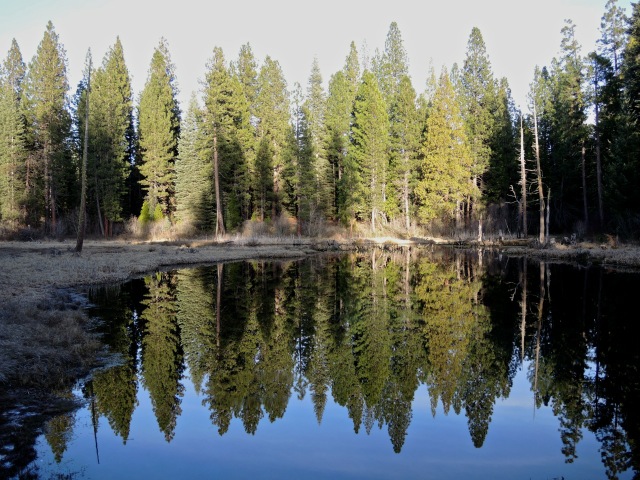
In 2016, we completed the agreement to conserve this 1,400 acre McCloud Soda Springs property. This water-rich forest bounds the town of McCloud and connects with other PFT conserved properties, helping sustain the forest economy and protect key water sources for the McCloud River. The McCloud provides the coldest, cleanest water for California’s water system.
CLIMATE
Combatting climate change through sustaining and stewarding forests is part of PFT’s core work. In 2016, we celebrated the extension of California’s commitment to continuing reductions of dangerous greenhouse gas emissions until at least 2030 and SB 1386’s passage, which recognized forests and other natural and working lands as the “fifth pillar” of California’s climate strategy. PFT worked closely with state leaders, policy-makers and many stakeholders to ensure that the contributions of forests, and other lands, were recognized in this comprehensive way.
Further, our work was broadly leveraged in the state’s Scoping Plan Update, the Vibrant Communities Plan and the Forest Carbon Plan, with each containing goals to conserve and manage for resilient forests enhancing their climate and adaptation benefits. PFT’s work is highlighted in the Forest Carbon Plan as a model of forest management which restores resilience and creates lasting benefits at the landscape scale.
Another major gain was made in SB 812, which specifically requires that state climate investments in forests result in enduring benefits, promoting the natural forest functions that underpin resilience. We also worked with stakeholders in Oregon and Washington to promote learning from these approaches as models for state action. In 2017, we will continue to advance forests and other working landscapes as a solution to help meet the state’s target for CO₂ emissions reductions, both through offsets and at the landscape level.
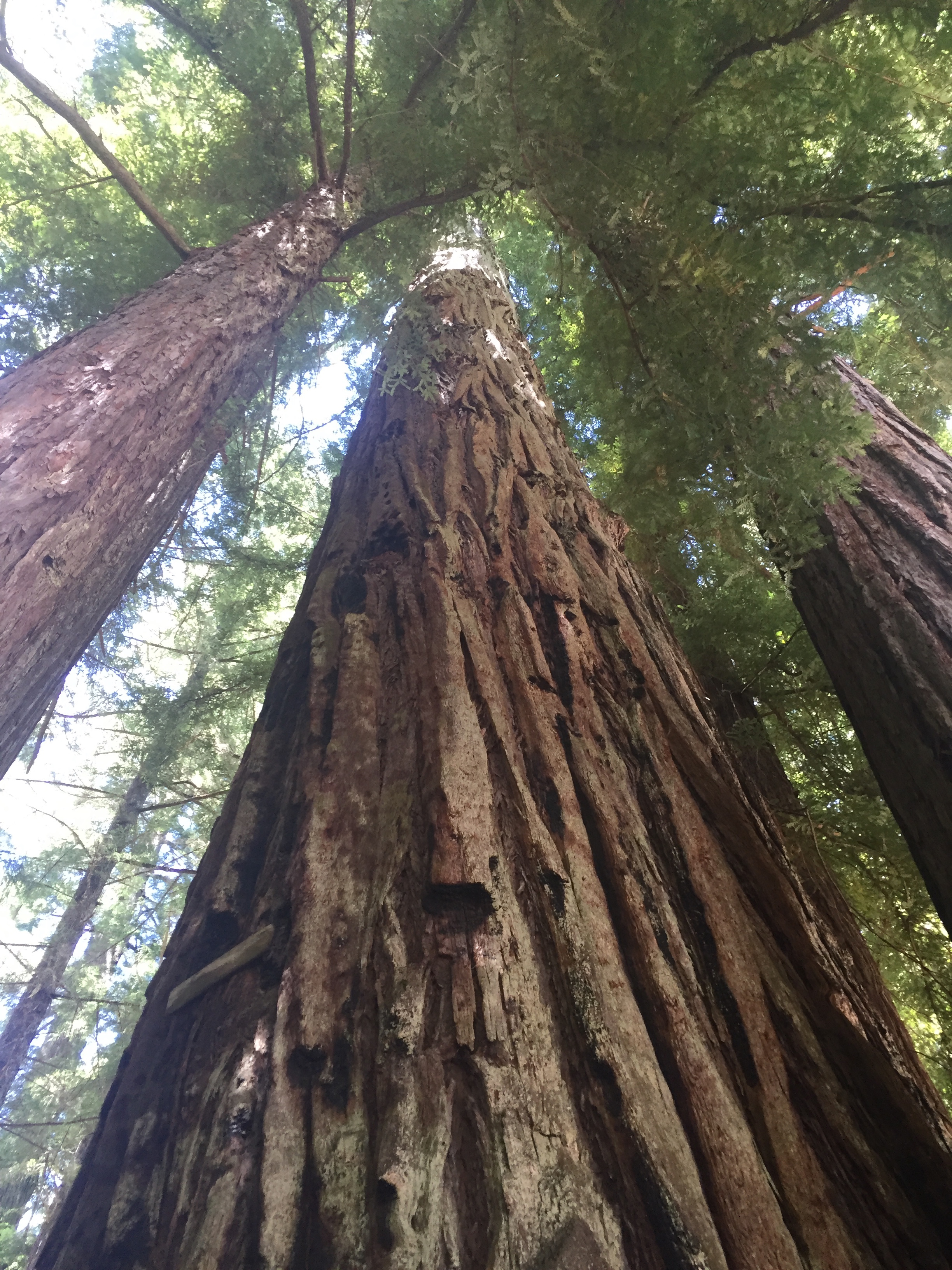
Conserving and restoring resilient working forests through improved forest management is the largest, safest, and most immediate opportunity to reduce excess levels of CO₂ in the atmosphere.
WILDLIFE
Climate change threatens the future for wildlife, forcing many species to move and adjust their home ranges as their environments are altered.
This makes ensuring safe passage through connecting and protecting habitats, as well as restoring existing habitats, even more vital to many species’ survival. In 2016, PFT’s stewardship on 100,000 acres promoted safe habitats for over one hundred special status species, such as the pacific fisher, gray wolf and spotted owl who thrive in more mature, natural forest conditions. Restoring and improving forest and riparian habitats in the Van Eck forests in Oregon and California, promoting landscape-scale restoration in partnership with Collins at Goose Lake, California, and creating a new protected corridor for some 26 special status species in the Mt. Shasta Headwaters were among our key 2016 accomplishments benefiting wildlife.
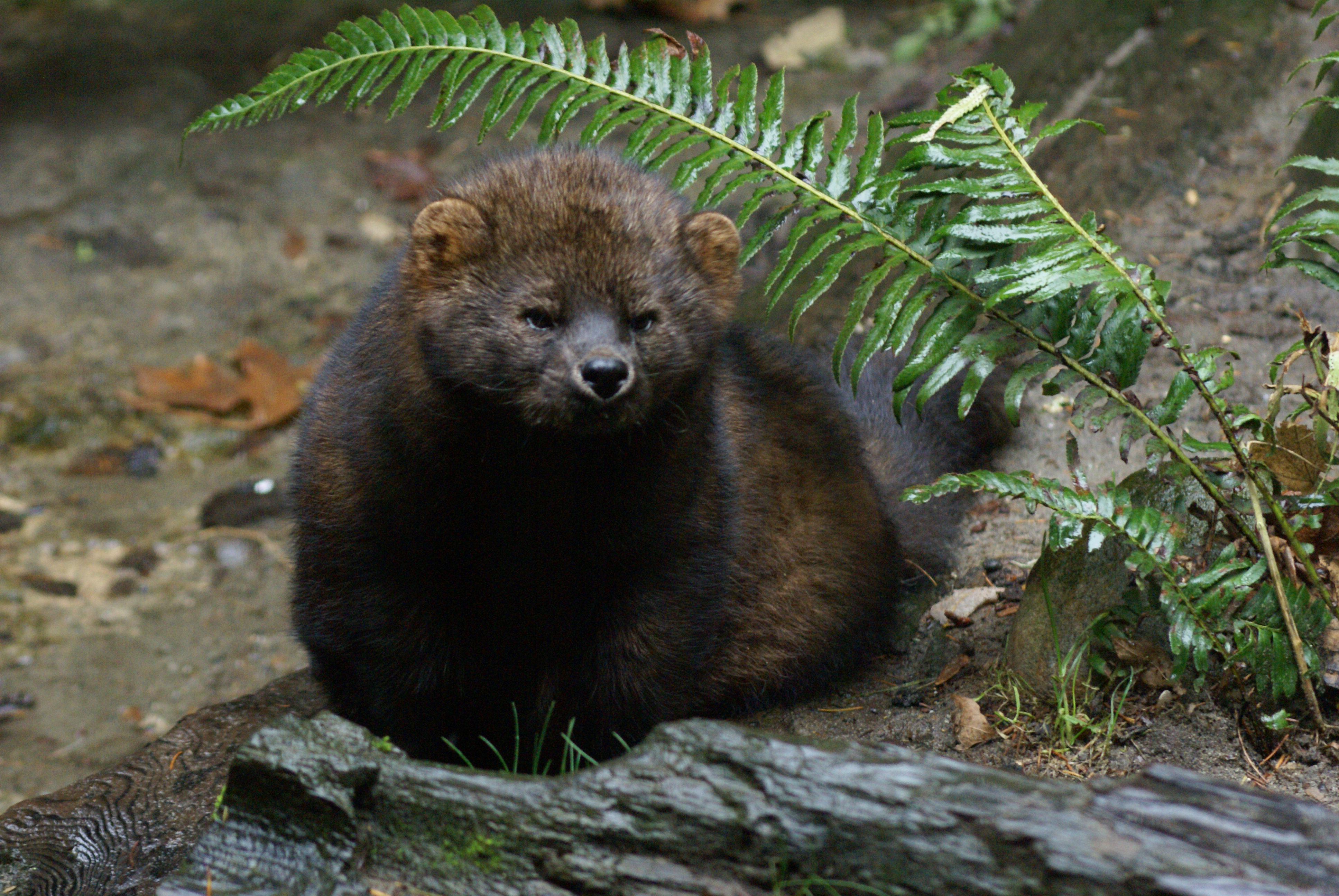
PFT’s stewardship forestry on the Van Eck California forests has resulted in the documented return of the imperiled pacific fisher to the property. Photo: U.S. Fish & Wildlife
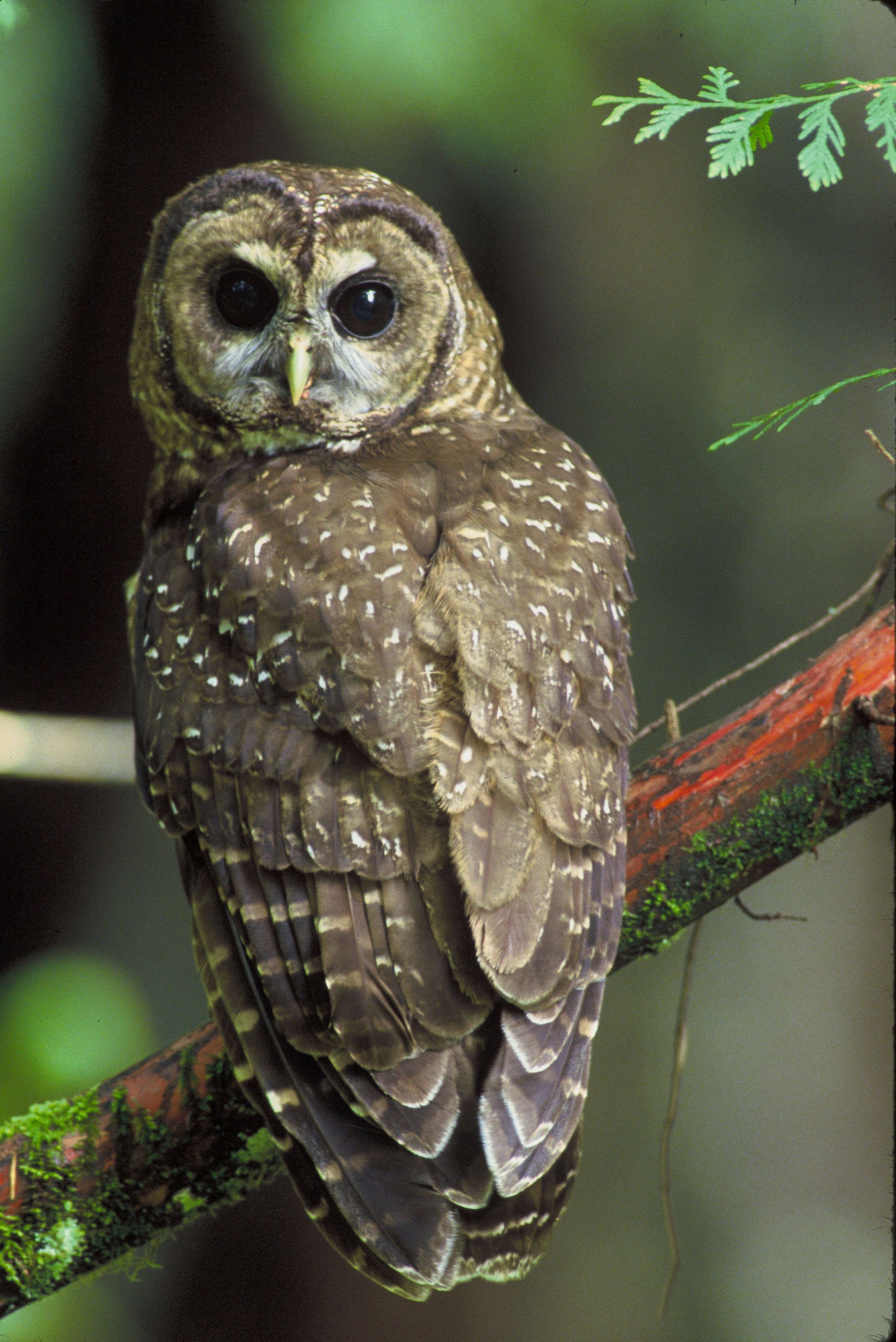
The benefit of PFT’s approach to helping endangered species such as the spotted owl through working forest conservation easements on private lands was recognized by a major federal-state grant towards our Mountcrest project in Oregon focused on helping this endangered species recover on these lands. Photo: U.S. Fish & Wildlife
Shaping the landscape for the future
We were honored to be reaccredited by the Land Trust Accreditation Commission in 2016, recognizing the high standards of our work.
PFT’s primary conservation focal area is the Klamath Cascade, the forested region of the Sierra, Cascades and Siskiyou- Klamath mountains linking northern California and southern Oregon. The most biodiverse, productive conifer forests globally and the source of much of the state’s water, this is our “living laboratory” where we seek to demonstrate economically competitive, landscape-level sustainable forestry, grounded in conservation.
2016 saw the successful completion the Dogwood Butte project, a years-long collaboration between PFT and its partners, the Hancock Timber Resource Group (HTRG) and the state of California. This protected 20 square miles of highly valuable, well-managed timberland and habitat in the McCloud watershed, the source of California’s coldest, cleanest water. HTRG chose Dogwood Butte to mark the planting of its billionth tree, another sign of its commitment to sustaining forests and its trust in PFT to protect that commitment.
Substantial progress was also made in four other projects: the 1,400 acre McCloud Soda Springs; the 5,000+ acre Black Butte forest; the 2,000 acre Mountcrest forest; and the 600 acre Martinetti Ranch.
The Martinetti Ranch is our sixth project in the Sierra Valley, largest alpine wetland in the US. We are proud to partner with the Martinetti family to protect their family’s multi-generation heritage of stewardship and were honored to win a $300,000 grant from California’s Strategic Agricultural Lands Conservation program to help conserve these headwaters of the Feather River.
We were honored to receive two grants towards protection of the Parsons family’s diverse and well-managed 2000 acre Mountcrest forest, just outside Ashland, Oregon: $900,000 from Oregon’s Watershed Enhancement Board (OWEB) and $1,000,000 from Oregon’s Department of Fish and Wildlife Service and the US Fish and Wildlife Service. In both, this marked a new approach to conserving working private forests, partnering with PFT to develop and hold the easement which protects water and imperiled species.
The McCloud Soda Springs project, a collaboration with Schroll Timberlands, borders our Dogwood Butte project, extending the protection of these highly productive forests in the face of marijuana and sprawling development.
We hope you will join us to complete these landmark projects; your partnership, support and investment enables our success!
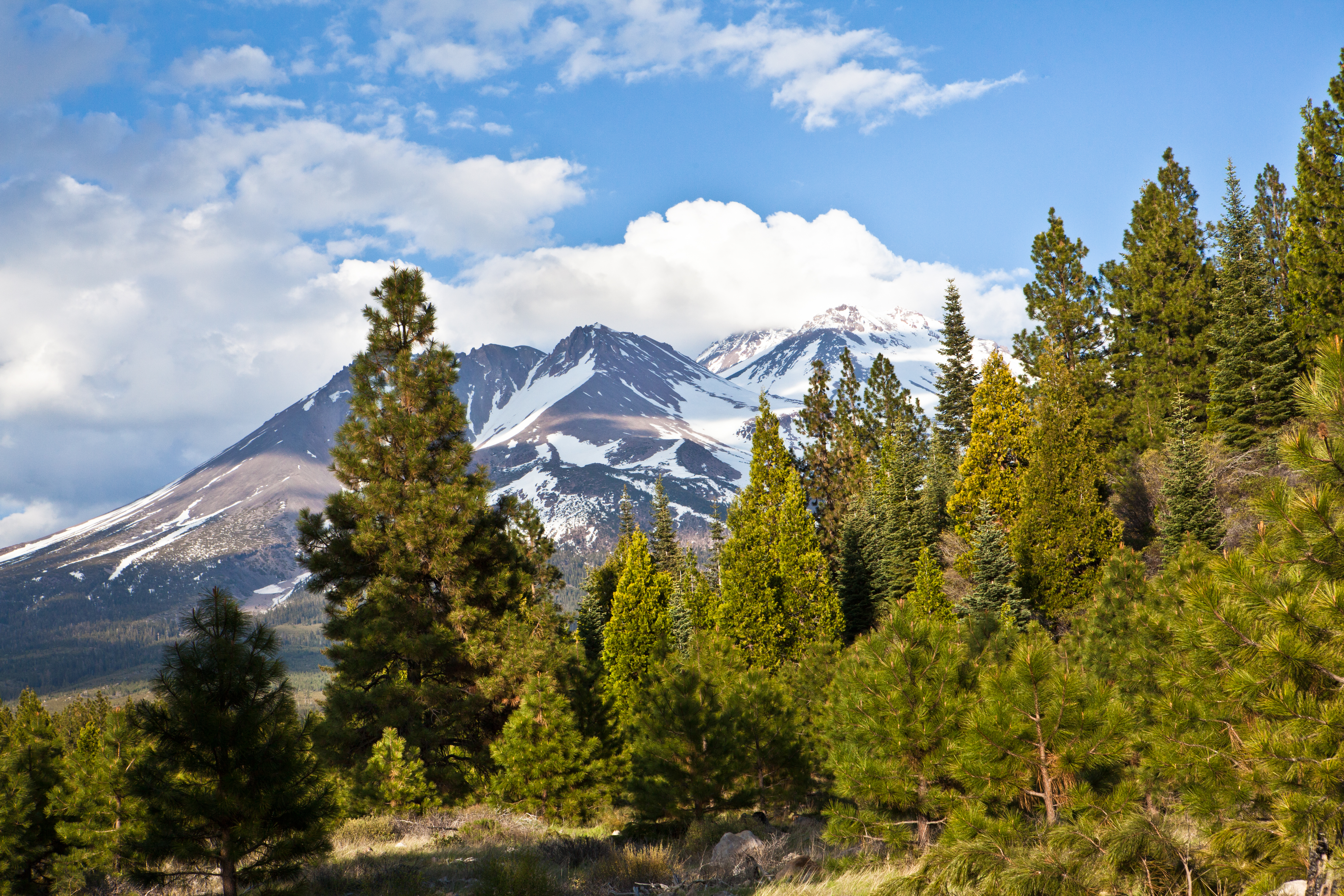
The Black Butte project is a collaboration with the Michigan-California Timber Company to protect their lands on the slopes of Mt. Shasta. This highly visible and exciting project is a model of managing for natural resilience and productivity in intensively managed forests, also providing recreational opportunities and restoring habitat.
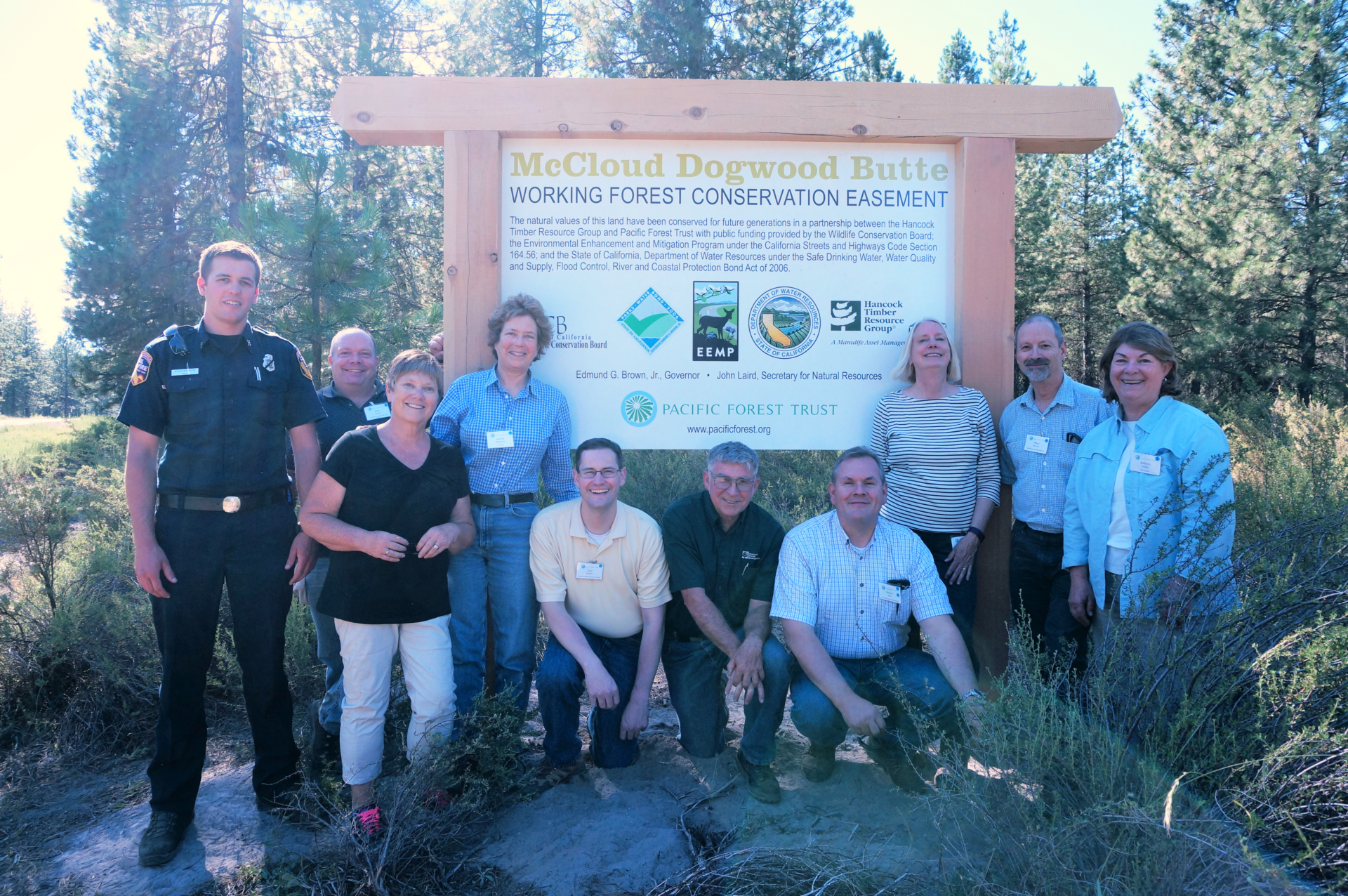
Dogwood Butte partners celebrating in 2016. This project brings PFT conservation projects in the McCloud River watershed to over 40,000 acres, linking hundreds of thousands of acres of public lands.
Searle Whitney, Giving to the Future
Pacific Forest Trust is enormously grateful to C. Searle Whitney for his generous bequest to our organization of over $1 million. Searle was inspired by PFT’s impact on the larger forest landscape, with benefits for both wildlife and rural communities. His very generous gift enables us to continue our vital conservation work. We will also be launching The Whitney Fellowship, a new program in his honor, which will carry on his commitment to future generations.
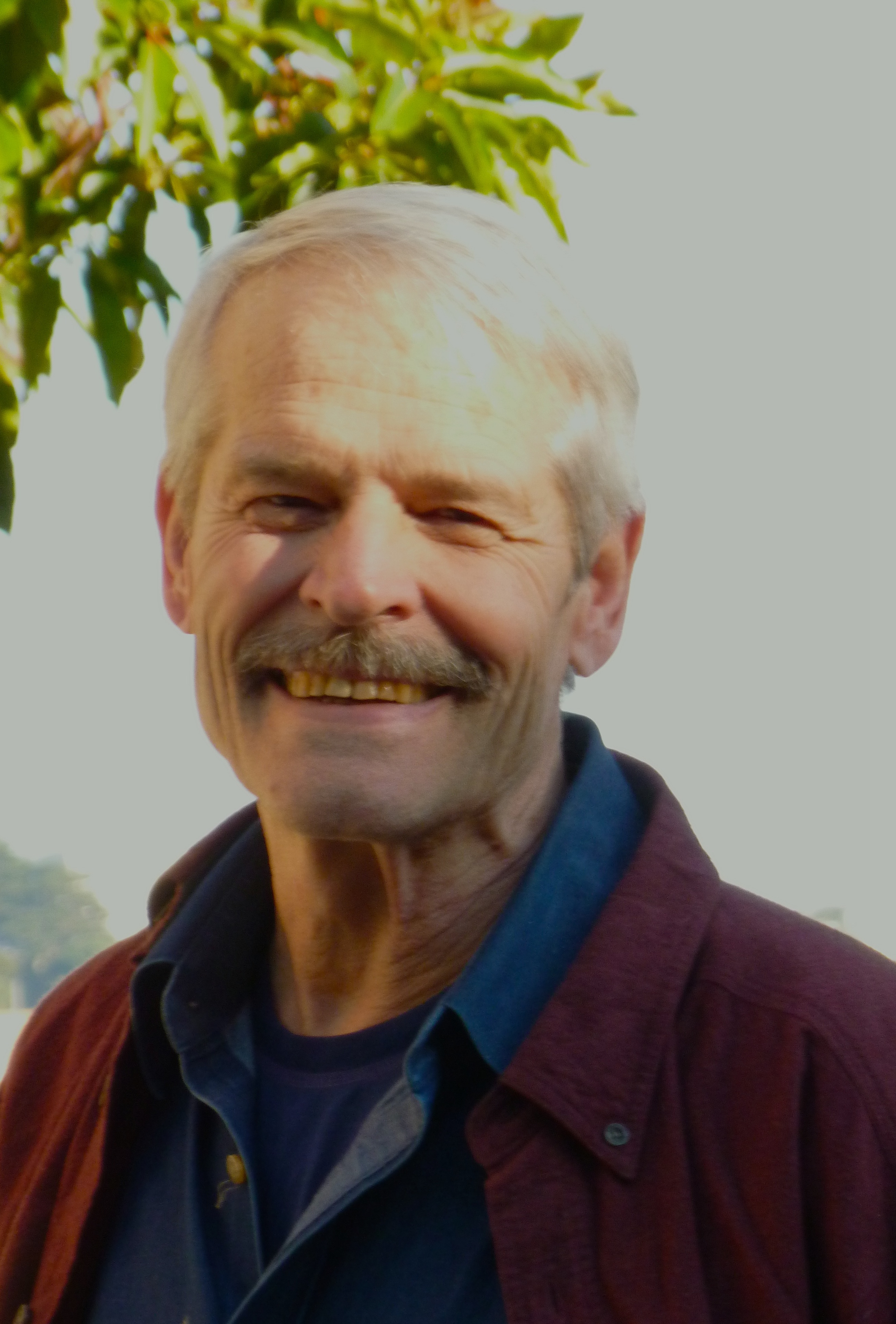
In Memoriam | C. Searle Whitney
November 14, 1944 – March 27, 2015
